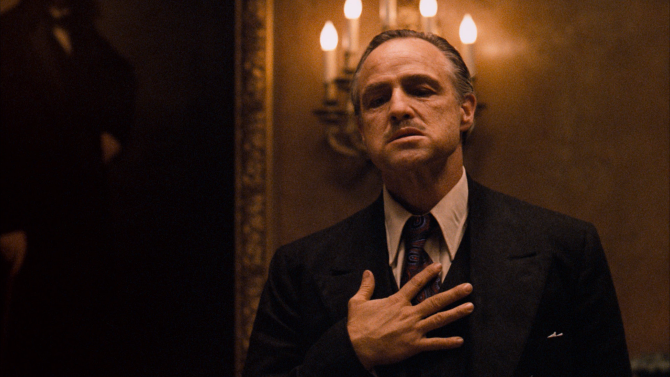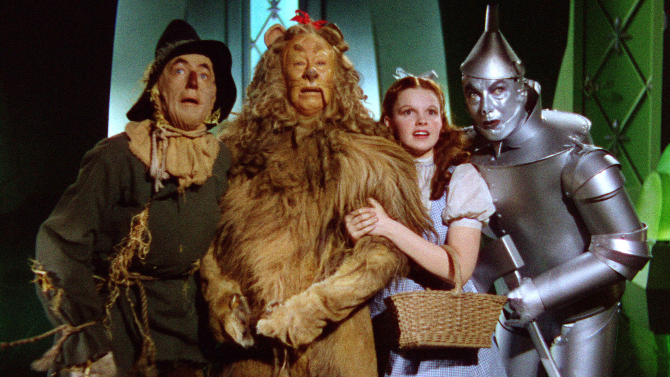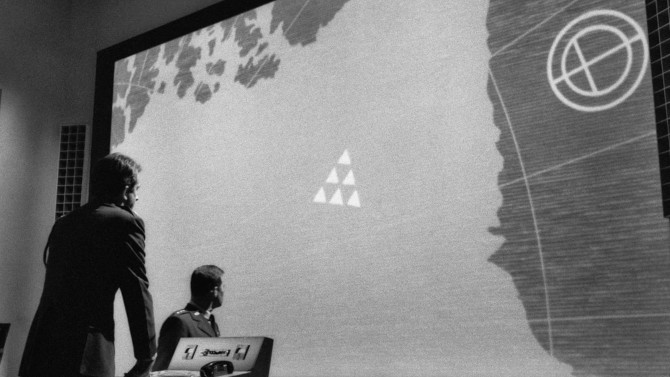
Safety First
Like a severe and utterly serious version of Stanley Kubrick’s 1964 satirical dark comedy Dr. Strangelove or: How I Learned to Stop Worrying and Love the Bomb, you would think that Fail Safe would have been the original release in theatres that was then later spoofed, yet that is not the case. Released approximately six months later in the same year, as you might imagine, it led to very poor returns at the box office – dare I say it (as the film deals with this subject matter)... it was a bomb! Despite that, over time, it has become a bonafide classic. Based upon Eugene Burdick’s 1962 novel of the same name and directed by Sidney Lumet (Dog Day Afternoon), he introduces us to our main players by way of little vignettes.
-
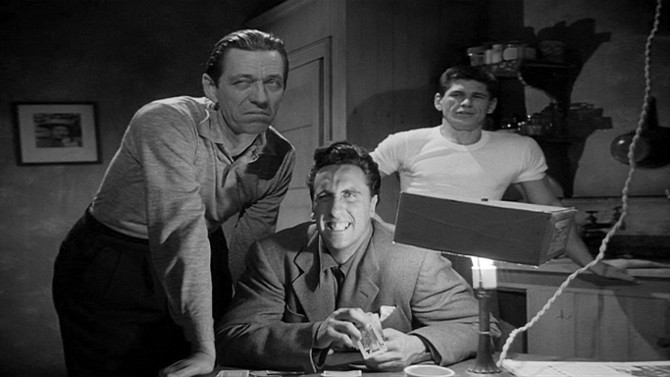
Wave this Noir Flick onto your List
Crime WaveNovember 18, 2016Placing us in the back seat with three escaped convicts, director André De Toth makes us culpable from the very beginning in his 1953 film noir Crime Wave. We know that there is an inevitability to the scene, though at first, we do not know exactly what that is. The three unscrupulous amigos are on a crime wave (who would have thunk it?). Pulling up to a gas station late one night, the attendant finds himself knocked out by the group – they then take their sweet time filling their tank and robbing the store. Soon, a cop drives by, circling around when he does not see his friend at the pump. Things turn ugly, leaving one of the criminals shot and the officer dead with two slugs in his chest. Splitting up, gang leader ‘Doc’ Penny (Ted de Corsia) and his thuggish accomplice Ben Hastings (an early role for Charles Bronson – you can tell this as he is credited as Charles Buchinsky) take off, leaving their wounded compatriot to fend for himself.
-
Star Pick with Steve Paikin
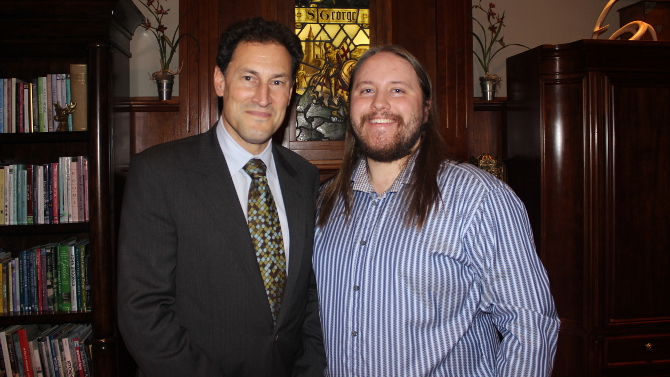 Add this Crime Classic to Your AgendaThe GodfatherNovember 15, 2016
Add this Crime Classic to Your AgendaThe GodfatherNovember 15, 2016This past Saturday, a wonderful event was held in Cornwall, when television personality Steve Paikin spoke to a packed audience along with author Art Milnes about their respective books, politics in North America and a number of historical topics – all to raise money for the Children’s Treatment Centre. It was both an entertaining and enriching experience that left the crowd wanting more. Paikin is perhaps best known for being the knowledgeable and euphonious host of TVO’s current affairs program The Agenda, in which he entertains experts, covering a whole range of subjects from politics to social issues. Also a well respected author, he just released his seventh book entitled, Bill Davis: Nation Builder, and Not So Bland After All – it takes an in depth look at the long serving Ontario Premier.
-
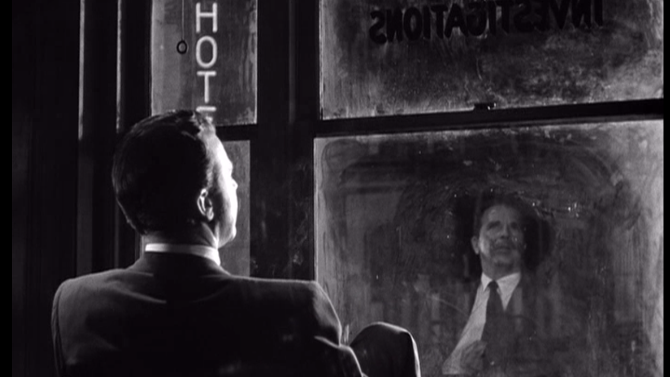
This Noir is a Feast for the Eyes
Murder, My SweetNovember 13, 2016Depicting a nightmarish landscape of big city nights, with a mix of brightly flashing neon signs and foggy, shadowy landscapes, the classic 1944 film noir Murder, My Sweet, directed by Edward Dmytryk (The Caine Mutiny), is a feast for the eyes. Our reflective narrator is Philip Marlowe (played by Dick Powell in this one), his eyes bandaged in ominous fashion as he recounts the strange tale of his most recent mysterious cases to the circling sharks that are the police – especially lieutenant Randall (Don Douglas). The iconic private detective is, as he says, "just a small businessman in a very messy business". Dmytryk’s canvas oozes a certain visual panache, a perfect example being the way in which Marlowe meets a new client. Gazing out at the flashing neon signs from his office, in certain lights, he sees a face no one could forget (though at first it feels like some sort of vision or premonition). Soon, he realizes that there is a behemoth of a man standing behind him, named ‘Moose’ Malloy (Mike Mazurki) – he is a tough, thuggish giant who lacks brains, but makes up for it with brawn and a stick-to-it-iveness that is difficult to ignore. Marlowe soon realizes that the confused man won’t take no for an answer, so he accepts the money being offered to him and decides to hear him out.
-
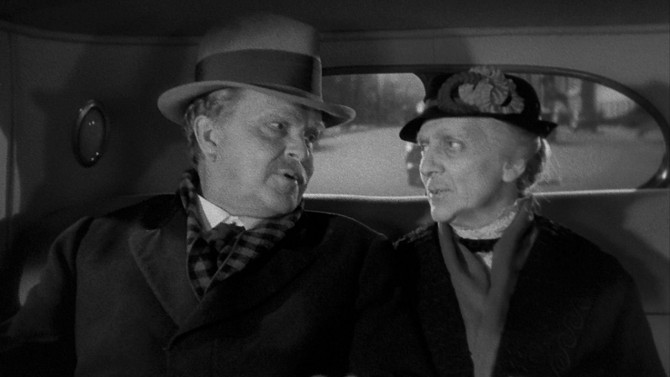
Here Today, Gone Tomorrow
Make Way for TomorrowNovember 11, 2016Upon winning Best Director at the Academy Awards for his 1937 screwball comedy The Awful Truth (the highest grossing film of the year), Leo McCarey took his Oscar, turned to the applauding crowd and uttered the unusual acceptance of "I want to thank the Academy for this wonderful award . . . but you gave it to me for the wrong picture". The movie he was talking about was the powerfully emotional drama Make Way for Tomorrow. A bust at the box office, the film still brought recognition to one of the premier filmmakers of the era. Being a favourite of John Ford, Frank Capra, Jean Renoir, Ernst Lubitsch, George Bernard Shaw and Orson Welles (who called it one of the saddest films ever, claiming that "it would even make a stone cry"), as well as being the inspiration behind Yasujirô Ozu’s classic 1953 picture Tokyo Story, this is a pure piece of emotional film making. Funnily enough, though praised by iconic filmmakers and ardent film fanatics alike, it is probably one of the least known motion pictures out there. Nearly unseen, thankfully Criterion has released it, providing the movie with an avenue to finally reach a larger audience.
-
Star Pick with Kevin Downey Jr.
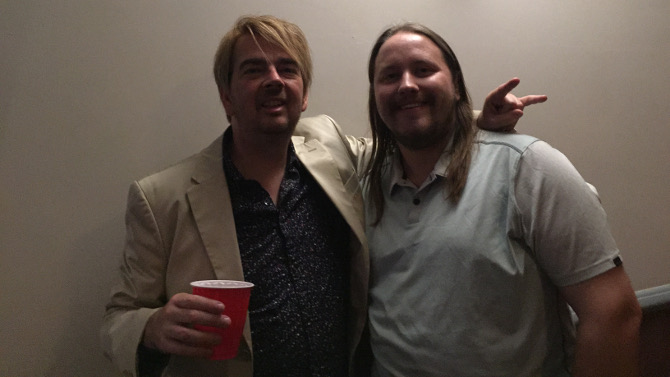 Lions, and Tigers, and Bears – Oh My!The Wizard of OzNovember 8, 2016
Lions, and Tigers, and Bears – Oh My!The Wizard of OzNovember 8, 2016What is there to say about a movie like The Wizard of Oz? If I had to compile a list of films that have been seen by the most people worldwide, the Victor Fleming directed musical adventure fantasy would likely land somewhere near the top of my list. I recently chatted with acclaimed comedian Kevin Downey Jr., who has carved out an ever growing niche in the difficult world of stand-up. The funny man, who caught his big break on season eight of the hit television show America’s Got Talent (making it all the way to the quarterfinals and being championed by all of the judges, but especially Howard Stern and Howie Mandel), has never looked back, launching himself to the "A" circuit, playing large clubs across North America, while being a frequenter on the highly entertaining morning radio program "The Bob and Tom Show", as well as also making appearances on Comedy Central, What Not to Wear and Queer Eye for the Straight Guy.
-
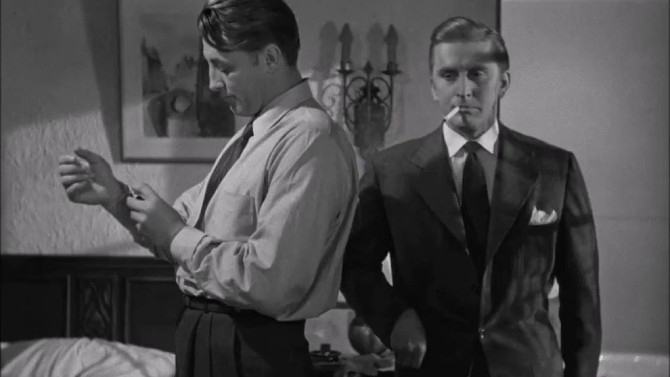
Shadowy Past Equals Grave Future
Out of the PastNovember 4, 2016Though we have all become accustomed to November being coined Movember, there is another moniker that is perhaps lesser known. ‘Noirvember’ has, over the last few years, gone viral, making this eleventh month of the year the perfect one to celebrate the shadowy, gloom filled, doom-laden film noirs of the 1940s and 50s. So, I thought I would start us off with a bang by reviewing the classic 1947 crime noir Out of the Past. Written by Daniel Mainwaring (he wrote the screenplay and the novel the film is based off of under the pseudonym Geoffrey Homes – titled "Build My Gallows High") and directed by Jacques Tourneur (Cat People), past mistakes meet present danger when gas station owner Jeff Bailey (Robert Mitchum), who has been hiding in a small California town after a torrid life, is tracked down by Joe Stefanos (Paul Valentine), a trusted henchman for a smooth but sketchy gangster named Whit Sterling (Kirk Douglas).

